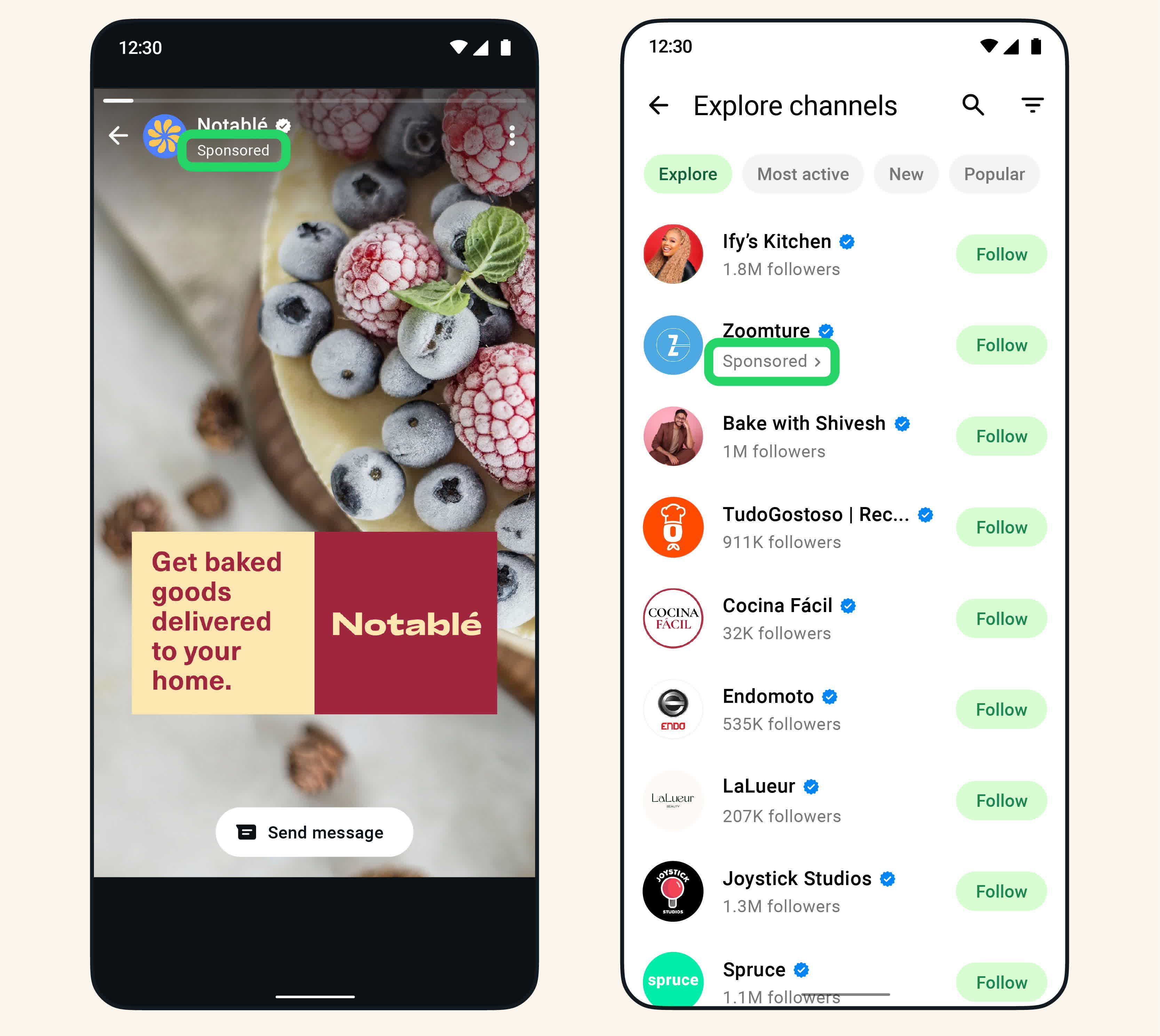What just happened? WhatsApp promised a few years ago that advertising would eventually become part of its app experience. Now, the company is starting to deliver on that promise. Privacy, encryption, and safety, however, are still guaranteed, the Meta-owned messaging service states.
WhatsApp recently confirmed that advertising is gradually rolling out to a significant portion of its users. According to a new help page, people using the app solely for personal messaging will not see any ads for the time being. Conversely, users who visit the Updates tab regularly will be subjected to the new sponsored experience.
I almost never visit the Updates tab WhatsApp is referring to, but the company claims that 1.5 billion people use that specific section of the app daily. The tab was previously useful for discovering the latest content from friends or exploring new, interesting channels, Meta's announcement said. Now, it will also serve as a tool for channel admins and vendors to "build and grow" their businesses.
The new advertising policy will be implemented in three ways. First, WhatsApp will promote channel subscriptions to encourage users to support their favorite channels. There will also be promoted channels, as well as ads displayed in the user's personal Status section within the Updates tab. According to WhatsApp, this will make starting a conversation with a specific business easier than ever.
WhatsApp explained that its advertising plan will not compromise users' security or privacy, adding that it will not leverage personal messages, calls, statuses, specific locations shared in chats, device contacts, or groups that include friends or family members for ad purposes. However, WhatsApp will make use of basic account information, some device metadata, general location (such as country or city), and Updates tab activity to determine what kind of ads to display to users.
By default, WhatsApp does not share personal information with Meta for advertising purposes. Sensitive data is anonymized, and users are always in control of their experience, the company claims. In fact, almost all of Meta's business (98 percent) relies on showing ads to users through Facebook and other social platforms.
Before being acquired by Meta, WhatsApp had promised not to show ads to its users. Now, the world's most popular messaging app has become another platform for building a profitable advertising business.
Before turning to ads, WhatsApp primarily generated revenue through its WhatsApp Business platform. According to VP of Product Alice Newton Rex, leveraging the Updates section felt like a natural next step in expanding WhatsApp's revenue prospects.

